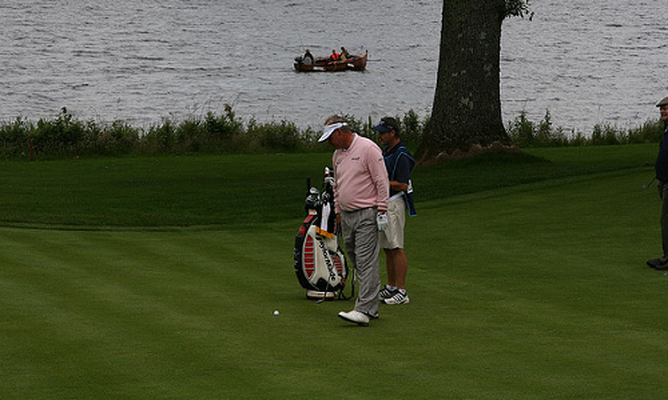Sunday 17th July 2011.
That is the day when the history books were rewritten as Northern Ireland claimed its third Major golf title in 13 months. An emotional Darren Clarke joined golf’s elite as he raised the famous Claret Jug aloft at the end of a gruelling days play. Utterly amazing.
That is the day when the history books were rewritten as Northern Ireland claimed its third Major golf title in 13 months. An emotional Darren Clarke joined golf’s elite as he raised the famous Claret Jug aloft at the end of a gruelling days play. Utterly amazing.
Northern Ireland has had its share of sporting success over the years considering its minnow status. I cast my mind back to the legends George Best and Alex Higgins, the victory over Spain in the 1982 World Cup, and most recently the defeat of England at Windsor Park in 2005.
What is clear though, is that Northern Ireland has never dominated a sport as much as Messrs McDowell, Rory McIlroy and Darren Clarke have in the last year.
Clarke’s triumph ensures that journalists across the world are talking about Northern Ireland for all the right reasons. As a native to the capital Belfast, I am all too aware of the stigma attached to it.
It is no secret that during the period 1969-1994 Northern Ireland was effectively at war. The country was torn apart as the Nationalist IRA battled with the Loyalist UDA and UVF in seeking independence from British rule, with the period known as ‘The Troubles’ claiming over 3,500 lives on both sides of the political divide.
In recent weeks, the unrest caused by the troubles has resurfaced. The period leading up to the 12th July known as the ‘Twelfth Fortnight’ has seen an escalation in street violence as tensions begin to rise.
The twelfth is a celebratory day for the loyalist community as ‘Orangemen’ take to the streets to parade throughout Belfast to commemorate the Glorious Revolution on 1688 when the Protestant King William of Orange defeated the Catholic King James II at the Battle of the Boyne.
I myself have had first hand experience of the violence this year. Whilst driving home on the evening of 20th June, I arrived at the Short Strand traffic lights only to watch as hundreds of youths hurled petrol bombs, bricks and a whole manner of other objects at both their enemies and the Police. It transpired that this was one of the most intense riots Belfast had seen – a lucky escape for me then!
A year prior to the first outbreak of violence in 1969, Godfrey and Hetty Clarke gave birth to a baby boy in the small town of Dungannon, County Tyrone. Darren Clarke started playing golf at the age of 11 before turning professional in 1990.
Although he is by no means a typical athlete in carrying a weight of over 15 stone, Darren’s charisma made him a firm favourite amongst the fans and his peers.
Indeed Darren led a playboy lifestyle, never disguising his love for a few pints of the black stuff, and could regularly be seen puffing on one of his beloved cigars as he strode down the fairways.
A conventional golfer he most certainly was not, but his talent could never be denied. His career saw many highlights, including a victory over Tiger Woods at the World Matchplay Championship in 2000, and finishes of second and third in the 1997 and 2001 Open Championships respectively.
What makes Darren’s story all the more sensational is the personal tragedy he suffered, as his wife and mother of his two children died of breast cancer after a long battle in August 2006.
An emotional Clarke defiantly led the European Ryder Cup team to victory one month later at the K Club in County Kildare as he displayed his raw golfing talent even in spite of such a great loss.
In the years that followed, he never seemed to recover mentally from the devastation of the ordeal. Until now.
In the last four days at Royal St. George’s Golf Club, Clarke has played the kind of golf everybody knew he was capable of. He has bounced back from the brink at the tender age of 42 to lift his maiden Major title, in conditions which were quite frankly some of the worst seen at an Open Championship.
A phenomenal performance but also a massive success for Northern Ireland, three major championship winners in just over one year is previously unheard of for such a small country.
The younger generation are relatively ignorant to the prejudices of the past, and it is success like this that makes us proud to be Northern Irishmen.
Peter Graham


 RSS Feed
RSS Feed